Potion Permit is a new roleplaying farming simulator from MassHive Media, a relatively new studio on the scene hailing from Indonesia. This small team has taken on the challenge of the growing monster that is the farming simulator/wholesome games genre for its first major release, and frankly — it does not disappoint.
Farming simulators are back on the market these past few years thanks in part to smash hits like Stardew Valley, which breathed fresh, new life into the genre. Potion Permit follows the tried-and-true formula of the farming simulator game, but with one major twist — you play as a chemist instead of a farmer. Like other games of the genre that have altered it to fit a new formula, such as Graveyard Keeper, the main elements have been adjusted to fit the setting. Instead of harvesting fruits and vegetables, characters venture into the areas around town to find ingredients to make medicine they use to treat the villagers, all while making money by running a clinic.
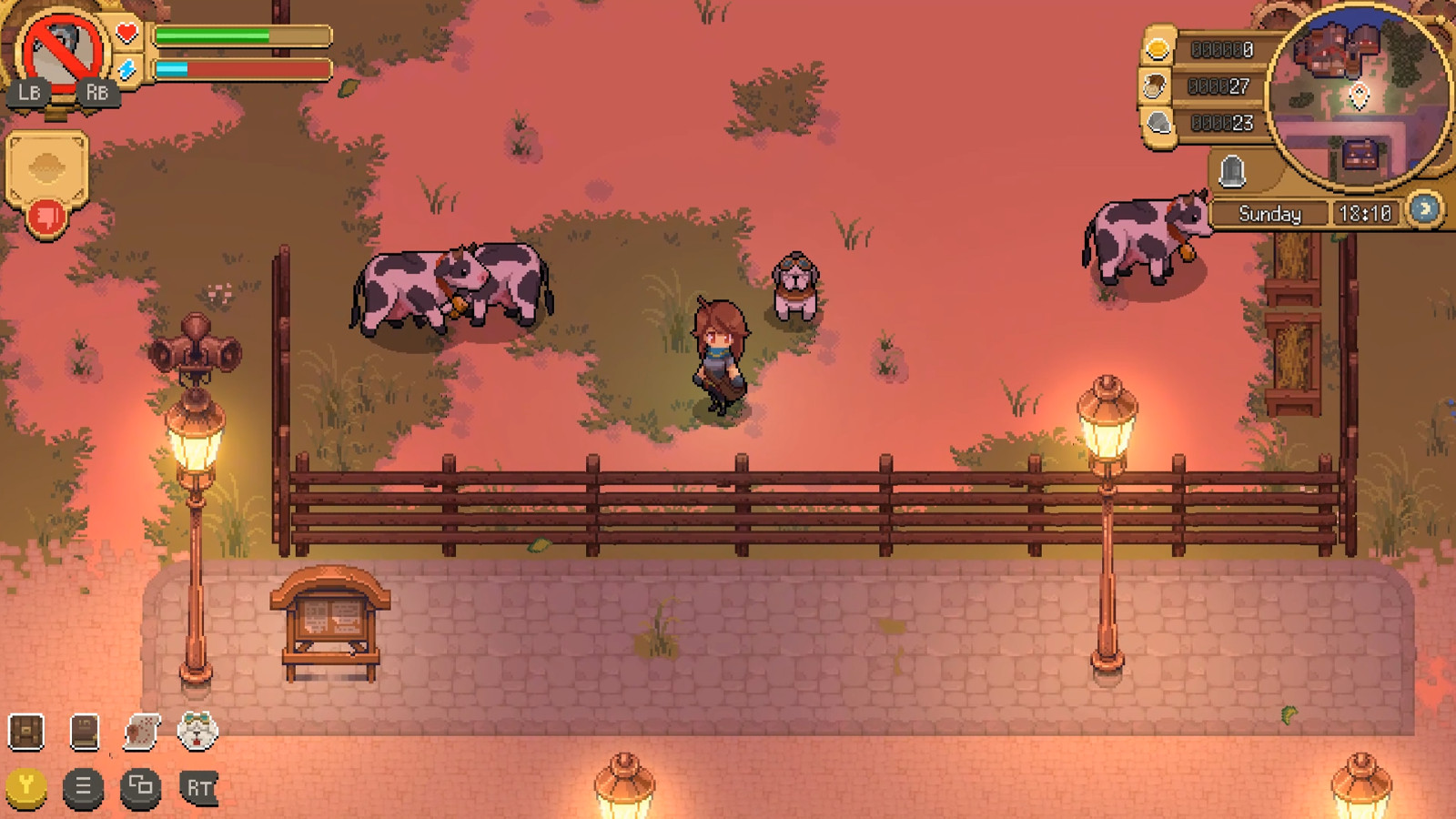
Essentially, Potion Permit follows the daily grind of a small town chemist/doctor — wake up, treat patients, gather ingredients, talk to towns folk, clear quests, sleep, repeat. The game starts with the main character — with the option of choosing between male or female — being sent to work in a small town in the middle of nowhere as a state-certified chemist but soon finds the villagers to be unkind towards them. Through piecing together bits here and there, players learn that a previous chemist experimented on the townspeople, exploiting their need for care for their own gain. Earning their trust once more will take some time.
Having a plot that slowly unfolds as you play is a nice change of pace, as most farming/life simulators don’t bother with telling a proper story beyond small slice-of-life segments. As the town begins to open itself to you, characters become more friendly and a sense of trust begins to develop. From here, romance options can be pursued and friendships blossom through daily interactions.
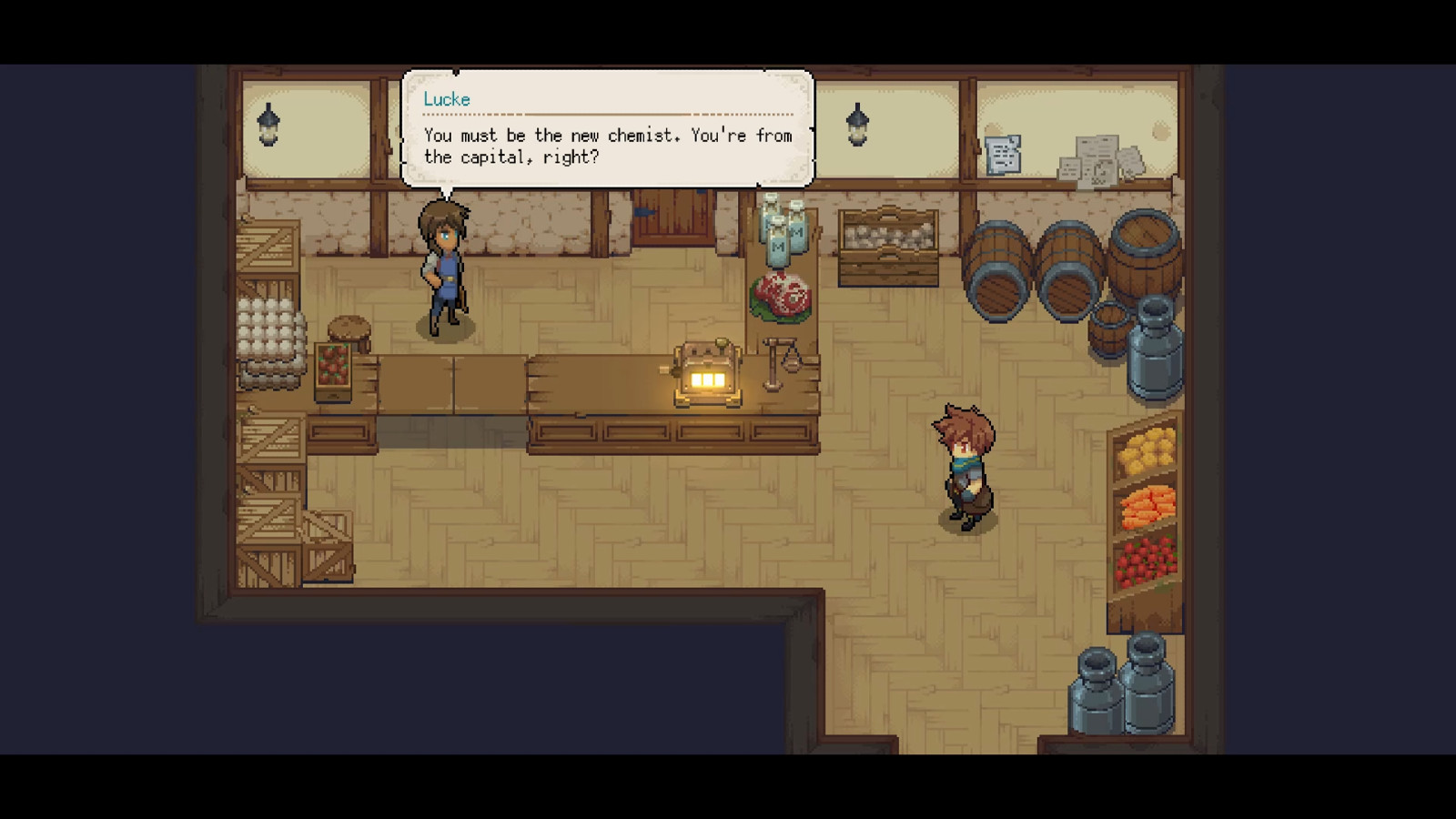
The townsfolk are all unique individuals, from a hook-handed pirate, a local cat, and a gambling parlor owner — there’s even a classic rich-old-man-mayor. Each one has unique quests and cutscenes for each friendship level. Progressing character friendships is well worth it, as it ties into the main plotline, unlocking new areas, and the ability to upgrade shops and features around the town.
The main selling point that sets this game out from the other hundred or so farming lifestyle games — besides the chemist role/setting — is the stunning pixel-based graphics. It is filled to the brim with details and matching fantasy town aesthetics that are equally adorable. The people and monsters are chibi-esque, with overly large heads and rounded features. The style suits the tone and setting perfectly, and is brought together by some rather smooth character animations. Unlike most games of the genre, Potion Permit doesn’t use character portraits, instead using speech bubbles with animated emoticons and small amounts of sprite animation to convey conversations and emotions.
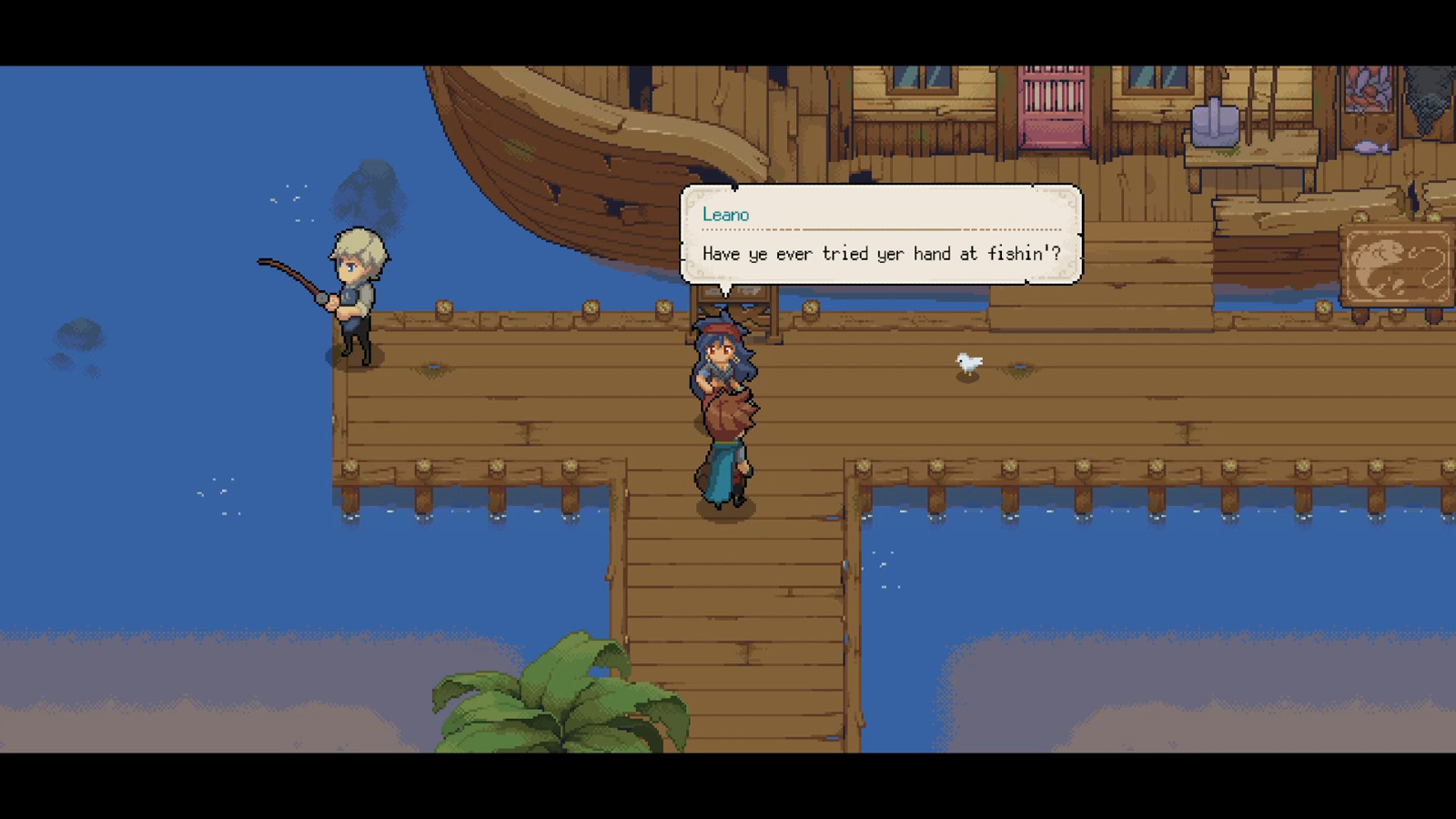
The heart of the gameplay revolves around gathering resources in the areas surrounding the town, as well as playing mini-games that tie into completing part-time work, fishing, diagnosing patients, and crafting the medicine required to heal them. These resources go either into the potions you make or completing quests around town, which helps to unlock new areas in which to gather resources for potions and completing quests to unlock even more areas — basically, this is the main loop the game is built around.
Potion Permit has taken a few steps to remedy some of the more annoying aspects of Stardew Valley and Harvest Moon. Players can instantly teleport to flags around the map, which doesn’t require any unlocking besides a one-time interaction. This greatly cuts down on running around the map and helps prevent players from rushing to get to a shop, only for the NPC to close down just before reaching the door. The game also gives you a pet dog that can track down any NPC for you, which saves you from consulting online wikis to work out their daily schedules. The dog is also adorable and follows you around outside wherever you go.
The areas around town are all based on the basic fantasy biomes — forest, snow, desert, etc. — and house rocks, trees, herbs, and monsters. All of these are resource sources, with monsters dropping loot on kill. Each resource requires a specific tool to harvest — a hammer for stone, an axe for trees, and a sickle for herbs — with monsters cycling between the three. These tools can be upgraded for a fee and reducing the time it takes to harvest and the amount of energy spent per resource. This is the key to making more money per day, with a limit on the amount of energy a player can use.
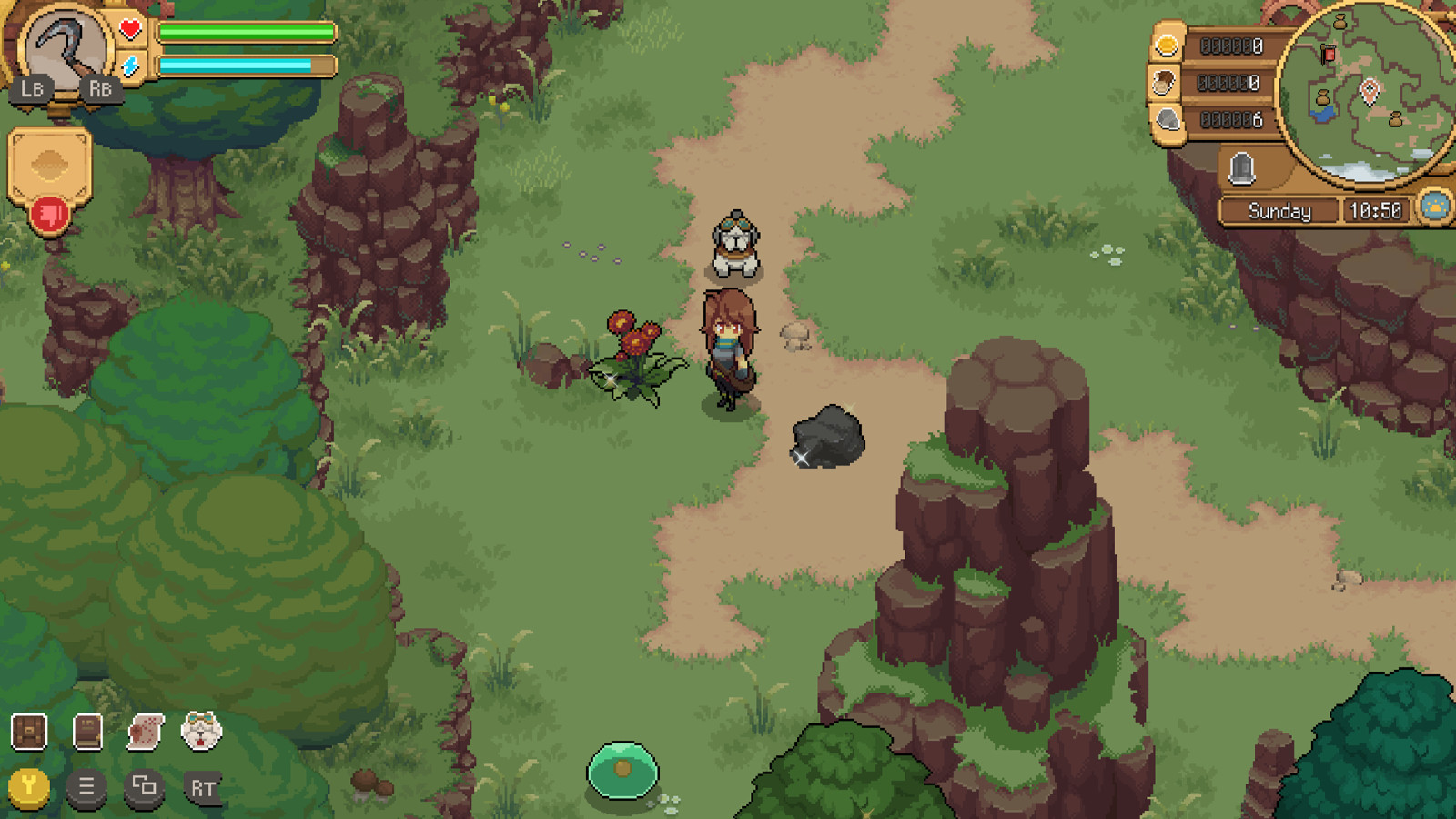
Back in town, the player has two main dwellings — a house and a clinic. In the clinic, the townsfolk will tuck themselves into a patient bed if they feel unwell each day, after which they can be diagnosed and treated with the corresponding potion on hand. Diagnosis takes the form of various bite-size mini-games, which are both simple and cute. Inside their house, players craft potions in their cauldron, with each ingredient having a Tetris-like shape that can fit into each potion’s ‘recipe’ slots. It’s a clever system and the simple animations and effects suit the pixel-based graphics perfectly.
One aspect that could use refining is the keyboard layout. Potion Permit was clearly designed with a gamepad in mind, so the keybindings can be awkward at times. Playing on a handled PC with a built-in controller reduced this friction, making the Switch port an ideal candidate.

Another bugbear is the lack of seasons and weather systems. The town remains relatively the same all year round; sunny and green. A change of seasons would have gone a long way to keeping things fresh, and the lack of variation, beyond the small amount of renovation work being done here and there, is disappointing. Having a town buried under a sheet of snow, or strewn with muddy puddles would be a nice change of pace, instead, every day looks the same. Instead, the game relies too heavily on the various zones around the town to represent the four main seasons, a choice that hinders the experience in the long run.
Potion Permit has all the makings of a genre staple and standout. The gameplay is simple and satisfying, with small and achievable goals making real differences in the scenery around the player. The opportunity to make an impact on the world around you is one of the game’s best-selling points and is ultimately key to its success. Fans of the genre are sure to love this new take on the formula laid out by Stardew Valley and will get out just as much as they put into the game.
This review is based on the PC version of the game. A copy was provided to us by PQube.

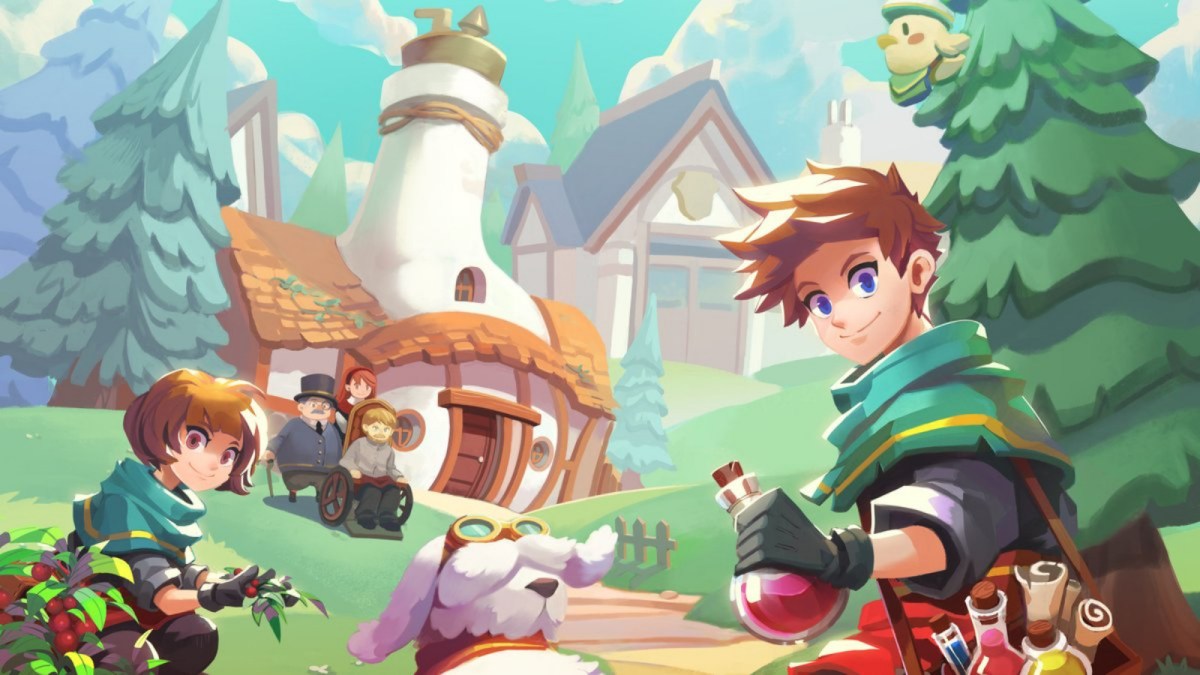








Published: Sep 26, 2022 11:02 am